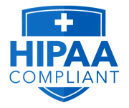Businesses handle vast amounts of sensitive information, from financial records to client contracts. Physical documents are prone to loss, theft, and damage, posing security risks. Document imaging companies and document imaging services provide secure solutions for digitizing confidential business documents, enhancing security, improving access control, and ensuring long-term protection against data breaches.
Risks of Storing Confidential Information in Physical Form
Susceptibility to Theft and Unauthorized Access
Physical documents can be easily accessed, stolen, or misplaced. Locked file cabinets and safes offer some protection but are not foolproof against unauthorized access.
Vulnerability to Physical Damage
Fires, floods, and natural disasters can permanently destroy critical documents. Even with backups, physical copies remain at risk of deterioration over time.
Difficulty in Tracking and Monitoring Access
Paper documents lack proper tracking mechanisms. Determining who accessed or copied a file is challenging, increasing the risk of insider threats.
Security Advantages of Document Digitization
Encryption and Access Controls
Digital files can be encrypted, restricting access to authorized personnel only. Multi-factor authentication (MFA) and password protection further enhance security, preventing unauthorized viewing or alterations.
Digital Audit Trails
With digitized documents, businesses can track who accesses, edits, or shares files. Audit logs help detect suspicious activity, ensuring accountability and compliance with data protection regulations.
Secure Cloud Storage and Backups
Cloud storage solutions provide encrypted backups, protecting data from physical disasters. Automatic backups ensure that documents remain accessible and intact even during hardware failure.
Implementing a Secure Document Digitization Strategy
Choose a Trusted Digitization Service
Partnering with a reputable document scanning service ensures sensitive files are securely handled during conversion. Look for providers that offer encryption, secure transfer methods, and compliance with industry security standards.
Establish Access Policies and Permissions
Limit document access based on roles within the organization. This will reduce the risk of data exposure, as employees should only have access to the information necessary for their job responsibilities.
Regular Security Audits and Compliance Checks
Perform routine security audits to identify potential vulnerabilities. Ensure compliance with data protection laws such as GDPR and HIPAA to maintain trust and avoid legal penalties.
Leveraging Blockchain for Enhanced Document Security
Immutable Record-Keeping
Blockchain technology offers an added security layer by creating immutable document transaction records. Once a document is added to a blockchain ledger, it cannot be altered or deleted, ensuring data integrity and preventing unauthorized modifications.
Decentralized Access Control
Unlike traditional centralized storage systems, blockchain distributes data across multiple nodes, reducing the risk of a single point of failure. This decentralized approach enhances document security by making it more difficult for hackers to compromise sensitive information.
Smart Contracts for Automated Security
Smart contracts can be programmed to enforce security policies, such as granting access only under specific conditions or triggering alerts for unauthorized attempts. This automation minimizes human intervention and strengthens document protection.
Enhancing Security with AI and Automation
AI-Powered Threat Detection
Artificial intelligence (AI) can analyze digital document activity, detecting unusual patterns indicating unauthorized access or cyber threats. Businesses can use AI-driven security tools to proactively identify risks and prevent data breaches.
Automated Document Classification
Machine learning algorithms can automatically classify and tag documents based on sensitivity, ensuring that high-risk files receive enhanced security measures. This automation reduces human error and improves data organization.
The Cost Savings of Secure Digital Document Management
Reducing Paper-Related Expenses
Digitization eliminates costs associated with printing, storing, and managing physical documents. Businesses can save money on paper, filing cabinets, and offsite storage solutions.
Minimizing Data Breach Costs
A data breach involving confidential documents can result in hefty fines and reputational damage. A secure digital document strategy reduces the risk of breaches, helping companies avoid legal and financial consequences.
Improving Productivity and Efficiency
Employees spend less time searching for files and more time on critical business tasks. Secure digital document management improves workflow efficiency, reduces delays, and enhances overall business operations.
Ensuring Compliance with Industry Regulations
Meeting Legal Requirements
Many industries, including healthcare, finance, and legal services, must follow strict document security regulations such as HIPAA, GDPR, and SOC 2. Digital records make it easier to comply with these regulations by providing secure storage, controlled access, and audit logs.
Avoiding Regulatory Penalties
Failure to secure sensitive business documents can lead to costly fines and legal consequences. Digitization ensures businesses meet compliance standards and avoid unnecessary risks associated with improper document handling.
Disaster Recovery and Business Continuity
Protection Against Data Loss
Physical documents are highly susceptible to loss due to disasters, theft, or accidental misplacement. Digital backups provide a failsafe, ensuring vital business records remain accessible despite unexpected disruptions.
Quick Recovery in Emergency Situations
Businesses with digital document management systems can quickly restore lost data from backups in a disaster, reducing downtime and maintaining operational continuity.
Conclusion
Document scanning services and document management solutions protect sensitive business information. By leveraging encryption, AI-powered security measures, and secure cloud storage, businesses can reduce security risks, improve regulatory compliance, and ensure long-term data protection. Partnering with digital imaging providers helps companies achieve cost savings and operational efficiency, making digital document management a wise investment for modern enterprises.
Ready to secure your business documents with advanced digital solutions? Smooth Solutions offers industry-leading document imaging and management services to protect sensitive information and enhance efficiency. Contact us today to learn how we can transform your document security.














